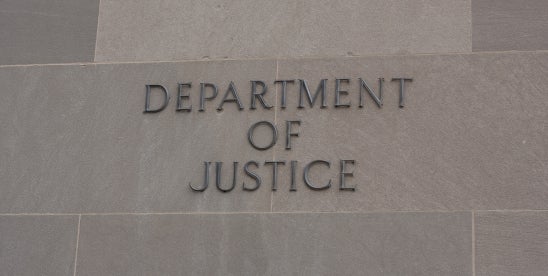On December 5, 2024, the Department of Justice (DOJ) and the Consumer Financial Protection Bureau (CFPB) issued a joint letter directed at financial service providers to reinforce the importance of interest rate protections under the Servicemembers Civil Relief Act (SCRA). The letter underscores the necessity of compliance with these protections while offering practical guidance to ensure servicemembers benefit fully from the law.
Expanded Coverage
The SCRA includes specific provisions for groups beyond traditional active duty servicemembers, which the DOJ and CFPB’s joint letter highlights:
- Reservists – Coverage begins upon receiving qualifying orders, which may occur months before the entry into active duty.
- National Guard Members – Coverage applies when members serve under Title 10 federal orders (including training orders) or respond to national emergencies under 32 U.S.C. § 502(f) for periods exceeding 30 days.
- Veterans – Former servicemembers can apply for the interest rate benefit up to 180 days after their service ends, and mortgage-related protections extend for an additional year post-service.
DOJ and CFPB Best Practices Recommendations
The DOJ and CFPB recommend the following measures to enhance compliance and ease servicemembers’ access to SCRA protections:
- Offer Greater Protections – Offer greater protections and benefits to servicemembers than those provided by the SCRA.
- Proactive Account Reviews – Use the DMDC to automatically identify eligible accounts and apply the 6% cap.
- Institution-Wide Application – If a servicemember requests the interest rate cap for one account, extend the cap to all eligible accounts held by that servicemember within the institution.
- Simplify Processes – Streamline the application and verification processes to reduce the administrative burden on servicemembers.
Understanding SCRA and Its Importance
The SCRA was enacted to safeguard servicemembers and their families from financial hardship caused by military service. Among its many provisions, the SCRA caps interest rates on certain pre-service financial obligations at 6% per year during active duty. This interest rate cap is designed to help servicemembers manage their financial commitments while focusing on their military responsibilities.
The joint letter acknowledges the challenges many servicemembers face in receiving these protections despite their entitlement under federal law. The CFPB estimates that fewer than 10% of eligible auto loans and 6% of personal loans held by activated National Guard and Reserve members benefit from the interest rate reduction, potentially costing servicemembers millions in lost savings annually.
Detailed Overview of SCRA Protections
THE 6% INTEREST RATE CAP
Under the SCRA, servicemembers are entitled to a cap of 6% on the annual interest rate, including most fees, for debts incurred before their active military service. The cap applies to a wide range of financial obligations, including:
- Credit Cards
- Auto Loans
- Mortgages
- Personal Loans
- Student Loans
- Home Equity Loans
The SCRA mandates that creditors must forgive — not defer — any interest exceeding 6%, retroactive to the first day of active-duty service. For mortgages, this interest rate cap extends one year after the servicemember’s military service ends, while other obligations are covered only during active service.
PROTECTIONS FOR SPOUSES AND JOINT ACCOUNTS
The protections of the SCRA extend to loans or financial obligations that a servicemember’s spouse has co-signed. This ensures that joint accounts are covered under the interest rate cap, providing comprehensive financial relief to military families.
Application Process
To invoke these protections, servicemembers must:
- Submit written notice (which can include electronic submissions) to their creditor.
- Provide evidence of their military service, such as:
- Military orders
- A letter from a commanding officer
- Other indicators of active service
Creditors are obligated to act promptly upon receiving this notice. Specifically, they must:
- Adjust the interest rate to 6% retroactively.
- Reduce monthly payments to reflect the reduced interest.
- Forgo the acceleration of the loan principal due to the interest reduction.
- Failure to comply can result in enforcement actions by the DOJ and CFPB.
Clarifications on DMDC Database Use
The Defense Manpower Data Center (DMDC) database is a key tool for verifying military service. However, the joint letter warns that some active-duty periods may not appear in the DMDC records, particularly short-term orders or amended orders extending active service. Financial institutions are reminded that DMDC verification is only a safe harbor when the creditor has not received documentation directly from the servicemember. If the servicemember submits the written notice and appropriate indicator of service within 180 days of the end of military service, financial institutions must provide the SCRA’s interest rate relief even if the DMDC does not show a period of active service.
Addressing Compliance Challenges
The joint letter highlights statistics that suggest a gap in compliance with the SCRA’s interest rate protections. The CFPB’s research shows that barriers to accessing these benefits, including cumbersome application processes, leave many eligible servicemembers without the financial relief provided by the SCRA.
Final Thoughts
The joint letter highlights the importance of adhering to these guidelines and serves as a clear indication that these agencies will be actively monitoring financial institutions compliance with the SCRA. By taking proactive steps to review and update practices, institutions can not only meet their legal obligations but also demonstrate a commitment to supporting those who serve our nation.






